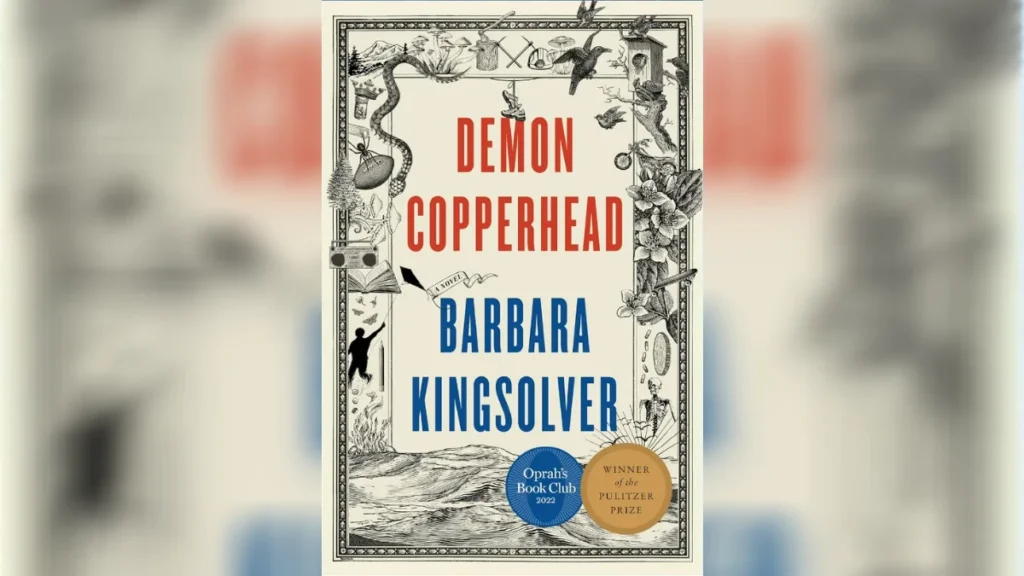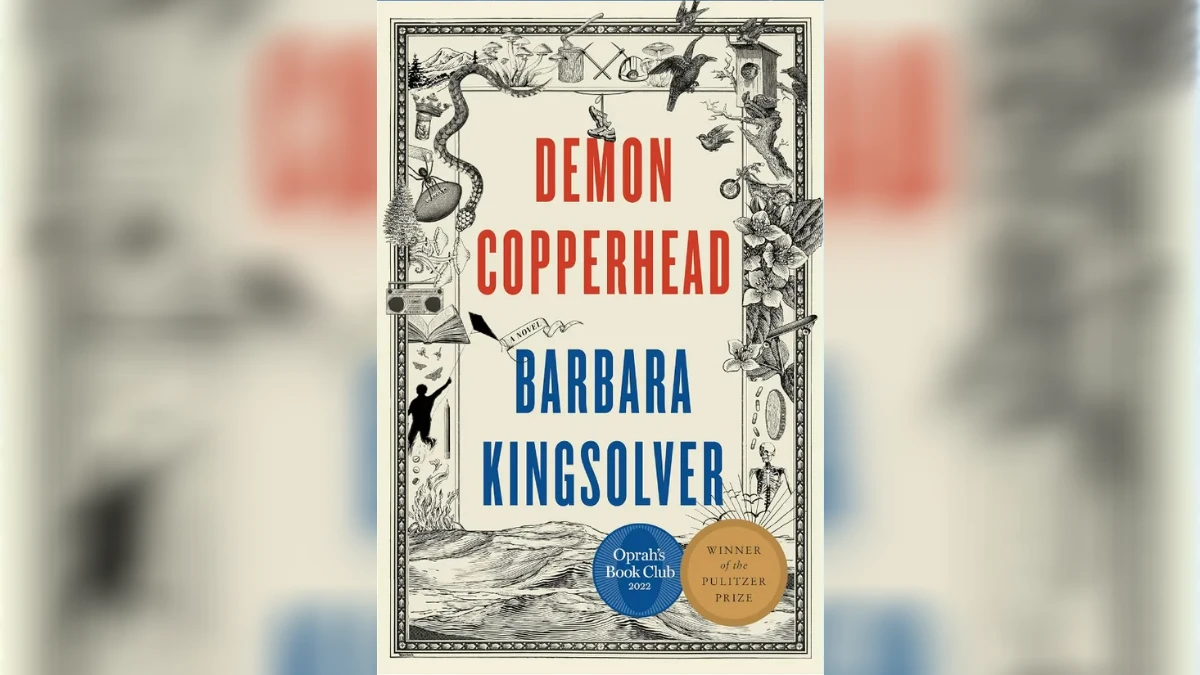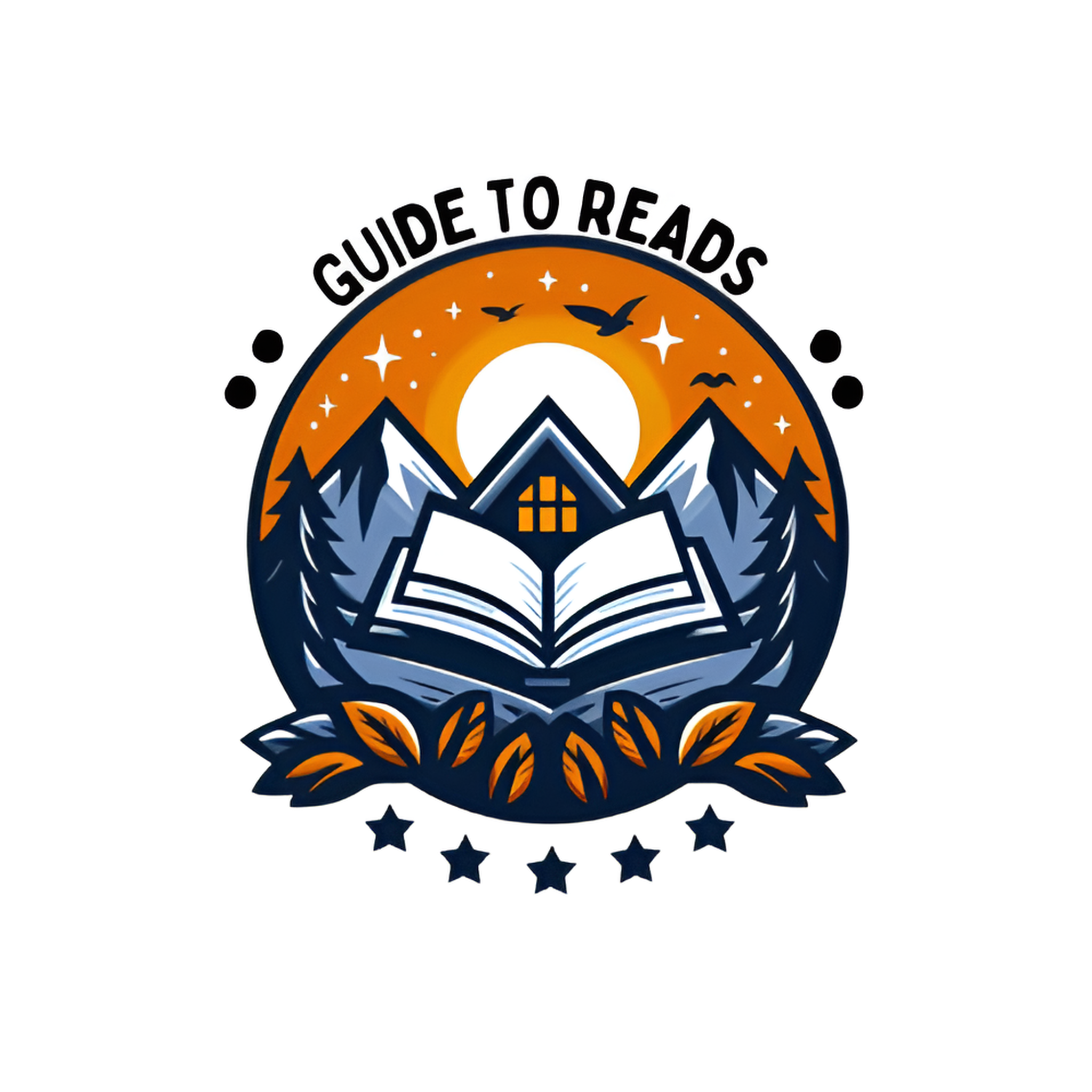In Demon Copperhead, Barbara Kingsolver presents a powerful retelling of Charles Dickens’ classic David Copperfield, set in the heart of rural Appalachia. This Demon Copperhead review explores how Kingsolver reimagines the story of an orphaned boy navigating the trials of poverty, addiction, and identity in modern-day America. With her signature blend of sharp social commentary and deeply empathetic storytelling, Kingsolver crafts a novel that speaks to the resilience of the human spirit while addressing urgent issues like the opioid crisis. This review will dive into the novel’s central themes, characters, and the emotional impact of Kingsolver’s retelling.
Plot Overview: A Modern American Classic
The Appalachian David Copperfield
In Demon Copperhead, the protagonist, Damon Fields—nicknamed Demon Copperhead due to his fiery red hair—is born into a world of poverty, addiction, and neglect in the Appalachian mountains. Much like Dickens’ David Copperfield, Demon faces a series of hardships from a young age: an absent father, an addicted mother, and a foster care system that continually fails him. Kingsolver draws clear parallels to Dickens’ original story while also updating it to reflect our modern era. She deftly mirrors key elements from the classic novel, yet places Demon’s struggle in a distinctly 21st century American setting.

A Child’s Struggle for Survival
As Demon grows, he faces increasingly difficult challenges, including abusive foster homes, hunger, and the lure of drugs. His journey through these dark moments forms the core of the novel, with Kingsolver capturing the harrowing effects of poverty and addiction on children. Yet, despite these grim realities, Demon Copperhead is also a story of survival. Demon’s resilience, humor, and resourcefulness offer moments of hope even in the bleakest of circumstances. Kingsolver takes care to highlight Demon’s innate spirit and optimism, showing how even the most tragic of circumstances cannot extinguish the human will to persevere.
This Demon Copperhead review examines how Kingsolver blends social commentary with emotionally resonant storytelling. She deftly mirrors Dickens’ timeless source material while also crafting a uniquely modern tale. Readers will feel deeply connected to Demon’s plight yet also uplifted by his strength of character. The novel offers an impactful exploration of social issues while also celebrating the human capacity for resilience.
- 2020 Book Tour Highlights: Must-See Authors and Literary Events
- Exploring Literary Gems: Top Novels of the 21st Century Every Book Lover Must Read
- A Review of Cloud Cuckoo Land: Anthony Doerr’s Timeless Journey Across Ages
Themes in Demon Copperhead
The Cycle of Poverty and Addiction
One of the novel’s central themes is the vicious cycle of poverty and addiction that plagues rural Appalachia. Kingsolver paints a vivid and heartbreaking portrait of a community ravaged by the opioid epidemic, with Demon’s life shaped by the systemic failures around him. This review delves into how Kingsolver addresses the lack of social safety nets, the exploitation of vulnerable populations by pharmaceutical companies, and the deep sense of isolation felt by those living in forgotten parts of America. She illuminates how the system is stacked against those in poverty from the outset.
Resilience in the Face of Adversity
Despite the heavy subject matter, Demon Copperhead is ultimately a story about the strength of the human spirit. Demon’s journey is one of resilience—whether it’s his ability to survive neglect, find friendship, or his struggle to define his own identity. This review highlights how Kingsolver uses Demon’s narrative to explore the power of hope, even in the most difficult circumstances, showing that survival itself can be an act of defiance. She emphasizes the small acts of courage that sustain people.
The Role of Community and Belonging
Throughout the novel, Demon seeks a sense of belonging, whether it’s through the foster care system, friendships, or his discovery of art as a means of self-expression. Kingsolver emphasizes the importance of community, and how the lack of support systems often leads individuals like Demon into cycles of abuse or addiction. This review underscores how Kingsolver weaves a tale of found family, illustrating that, while traditional systems may fail, human connection remains a powerful force for healing and growth. She suggests relationships are what give life meaning.
In summary, Kingsolver crafts an impactful story that shines a light on societal issues while celebrating the human strengths that help people overcome.
Character Analysis: The Complex Figures of Demon Copperhead
Demon: A Hero for the Marginalized
Demon Copperhead is a deeply flawed yet profoundly relatable protagonist. Kingsolver crafts him with a voice that is both vulnerable and defiant, allowing readers to witness his growth from a helpless child to a self-aware young man. His humor and tenacity make him a captivating narrator, while his moments of vulnerability offer a sobering look at the emotional toll of his circumstances. This review emphasizes how Kingsolver’s ability to create such a complex character ensures that Demon’s struggles resonate long after the novel’s end. By showing both Demon’s strengths and weaknesses, she makes his journey feel authentic.
The Supporting Cast: Mirrors of Society’s Failures
The supporting characters in Demon Copperhead—from Demon’s drug-addicted mother to the exploitative foster parents—serve as representations of the larger societal issues Kingsolver aims to critique. While many of these characters are deeply flawed, Kingsolver ensures that they are not caricatures but fully realized individuals shaped by their environments and past hardships. This review explores how each character, no matter how villainous or kind, adds nuance to the exploration of systemic problems that dominate the region. Their layered humanity makes the novel’s insights feel applicable to real-world issues.
Minor Players and Their Importance
Even relatively minor characters play meaningful roles. For example, Kingsolver imbues Demon’s precocious friend Chloe with optimism and emotional intelligence beyond her years. Through Chloe, the author depicts childhood resilience and the transformational power of friendship. Other transient figures also leave lasting impressions, showing how everyone Demon encounters shapes his development in some way. This review highlights Kingsolver’s deft use of both major and minor characters to explore interconnection and what it means to grow up in a place hanging by threads.
- 2020 Book Tour Highlights: Must-See Authors and Literary Events
- Exploring Literary Gems: Top Novels of the 21st Century Every Book Lover Must Read
- A Review of Cloud Cuckoo Land: Anthony Doerr’s Timeless Journey Across Ages
Kingsolver’s Social Commentary: Appalachia and the Opioid Crisis
A Deep Dive into America’s Forgotten Communities
Kingsolver’s portrayal of rural Appalachia in Demon Copperhead is both empathetic and unflinching. She paints a picture of a community that has been neglected by both the government and the broader American consciousness. Through Demon’s story, Kingsolver addresses the structural inequalities that trap individuals in cycles of poverty and addiction, and the limited opportunities available to those born into such environments. This review examines how Kingsolver’s depiction of Appalachia serves as a broader critique of America’s failure to uphold its ideals of equality and justice for all citizens.
The Opioid Epidemic
One of the most striking aspects of Demon Copperhead is Kingsolver’s exploration of the opioid crisis. Demon’s life is shaped by the epidemic—from his mother’s addiction to his own struggles with drug abuse. Kingsolver doesn’t shy away from showing the devastating impact of opioids on individuals and communities at both the physical and societal levels. This review highlights how her dramatic portrayal in the novel serves as a sobering reminder of an ongoing public health crisis that has been met with an inadequate response from those in power.
Addressing Stigma With Empathy
By developing her characters with nuanced depth, Kingsolver seeks to counter stereotypes about Appalachia and issues like addiction. She indicates that prevention and treatment, not punishment, are what’s needed. This review notes how Kingsolver presents the opioid epidemic and its root causes with empathy while also pointing a critical finger at systems that have failed vulnerable groups. Her balanced social commentary advocates for compassion over stigma.
Barbara Kingsolver’s Storytelling Mastery
A Modern Dickensian Tale
Kingsolver’s decision to base Demon Copperhead on Dickens’ David Copperfield allows her to explore universal themes of survival and identity, while grounding the novel in contemporary American issues. Her prose is both lyrical and grounded, capturing the beauty of Appalachia as well as its harsh realities. This review commends Kingsolver’s ability to balance a complex, multi-layered narrative with the intimacy of Demon’s personal journey, creating a novel that is both socially conscious and emotionally powerful. By drawing parallels to classic literature, she crafts a timeless story with resonant meaning for modern readers.
A Voice for the Marginalized
Through Demon’s first-person narration, Kingsolver gives voice to those often overlooked by society. Her depiction of his inner world—his thoughts, fears, and desires—ensures that readers understand the humanity behind the statistics of poverty and addiction. This review celebrates Kingsolver’s ability to bring such a unique perspective to life, offering readers a compassionate yet critical look at the struggles faced by America’s most marginalized communities. Her empathetic and vivid characterization compels engagement with serious issues.
Masterful Storyteller
From structural similarities to Dickens to raw emotive storytelling, Kingsolver deftly combines social commentary and page-turning drama. Both issues-driven and entertaining, Demon Copperhead keeps readers immersed while delivering insightful social critique. This review concludes Kingsolver is a storyteller operating at the peak of her abilities, who uses the power of fiction to honor real-world heroes like Demon and amplify unheard voices with hope of driving positive change.
- 2020 Book Tour Highlights: Must-See Authors and Literary Events
- Exploring Literary Gems: Top Novels of the 21st Century Every Book Lover Must Read
- A Review of Cloud Cuckoo Land: Anthony Doerr’s Timeless Journey Across Ages
The Strengths and Challenges of Demon Copperhead
Pros
Engaging Narrative Voice: Demon’s first-person narration is both captivating and relatable, drawing readers into his world and making them feel the full weight of his struggles and triumphs. Kingsolver ensures readers see themselves in Demon to feel invested in his journey.
Timely Social Commentary: By placing the novel in contemporary Appalachia, Kingsolver addresses urgent societal issues like poverty, addiction, and the failures of social systems in a way that feels relevant and necessary for today’s world.
Rich Characterization: Kingsolver excels at creating complex, nuanced characters who feel fully human, even in their flaws and failings. None are one-dimensional, reflecting society’s complexity.
Cons
Dark Themes: The novel tackles heavy issues such as abuse, addiction, and systemic poverty, which may make for a difficult and emotionally intense read for some readers unaccustomed to raw realism. However, others see this as a strength.
Pacing: As with many novels that span the protagonist’s life, there are moments where the pacing slows, especially in the middle sections of the book. But this also allows time for character development.
Conclusion:
In conclusion, Barbara Kingsolver’s Demon Copperhead is a modern masterpiece that revitalizes the social novel and classic coming-of-age tale for today’s world. By reimagining David Copperfield through the lens of her Appalachian protagonist Demon, Kingsolver offers a profound exploration of resilience, community, and what it means to find belonging in a society plagued by inequalities.
Through Demon’s unforgettable first-person narration, readers bear witness to the complex realities of poverty, addiction and neglect with empathy, honesty and hope. Kingsolver ensures Demon’s humanity and spirit shine through despite immense hardships, representing so many forgotten by current systems. Her nuanced characterization and detailed setting immerse readers while amplifying pressing discussions around healthcare, opportunity and justice in marginalized regions.
Blending compelling drama with timely social commentary, Demon Copperhead brings urgent issues like the opioid crisis to the forefront through an intimate yet sweeping journey of understanding who we are and where we come from. Most notably, Kingsolver’s modern classic leaves its enduring mark by reminding us of our shared power to rise above society’s failures through voices of perseverance and the human connections that can redefine a life. Demon Copperhead is a novel that will spark meaningful discussion and remain relevant for years to come. For its masterful storytelling and stirring message of resilience, it deserves widespread recognition as perhaps Kingsolver’s finest work to date.
































Add comment